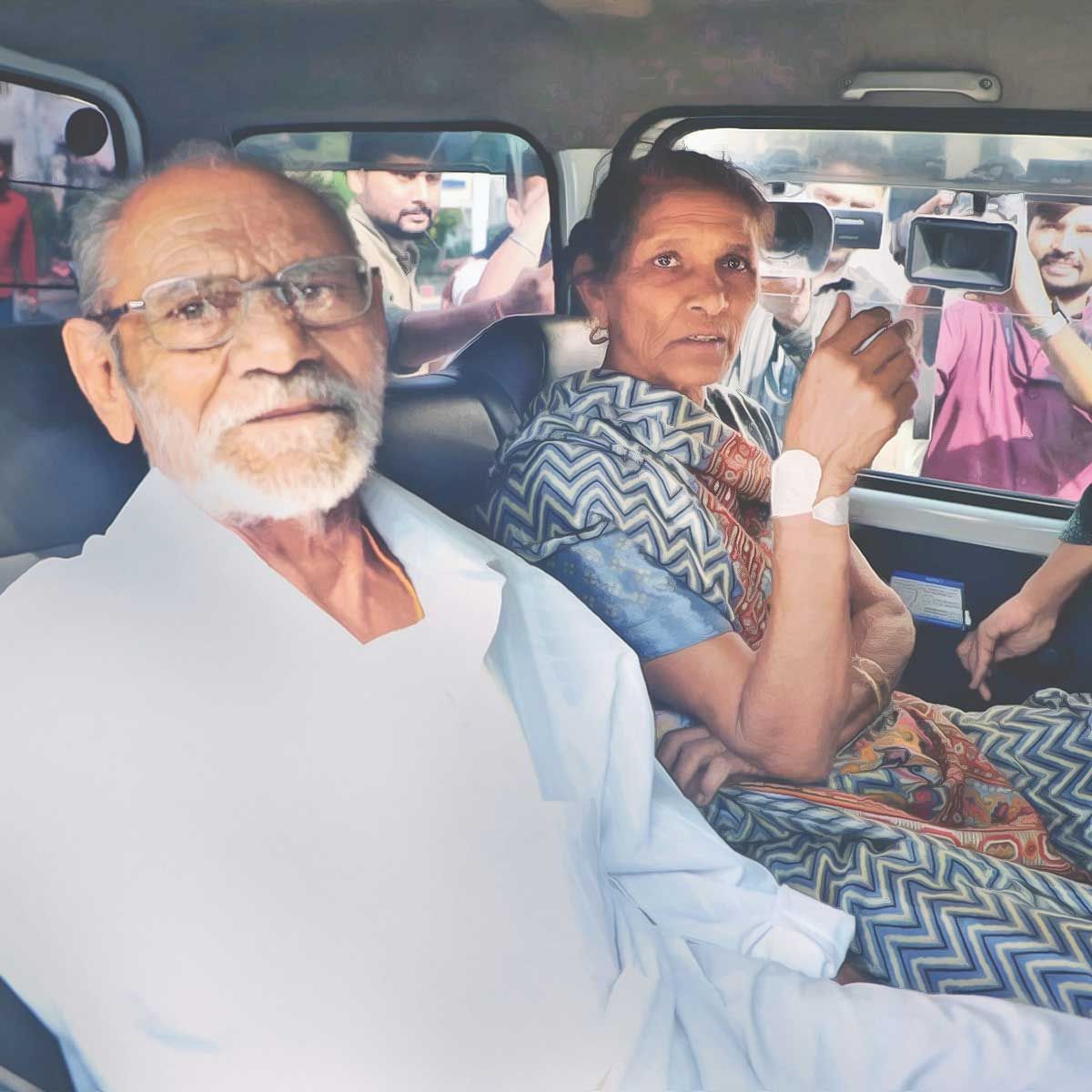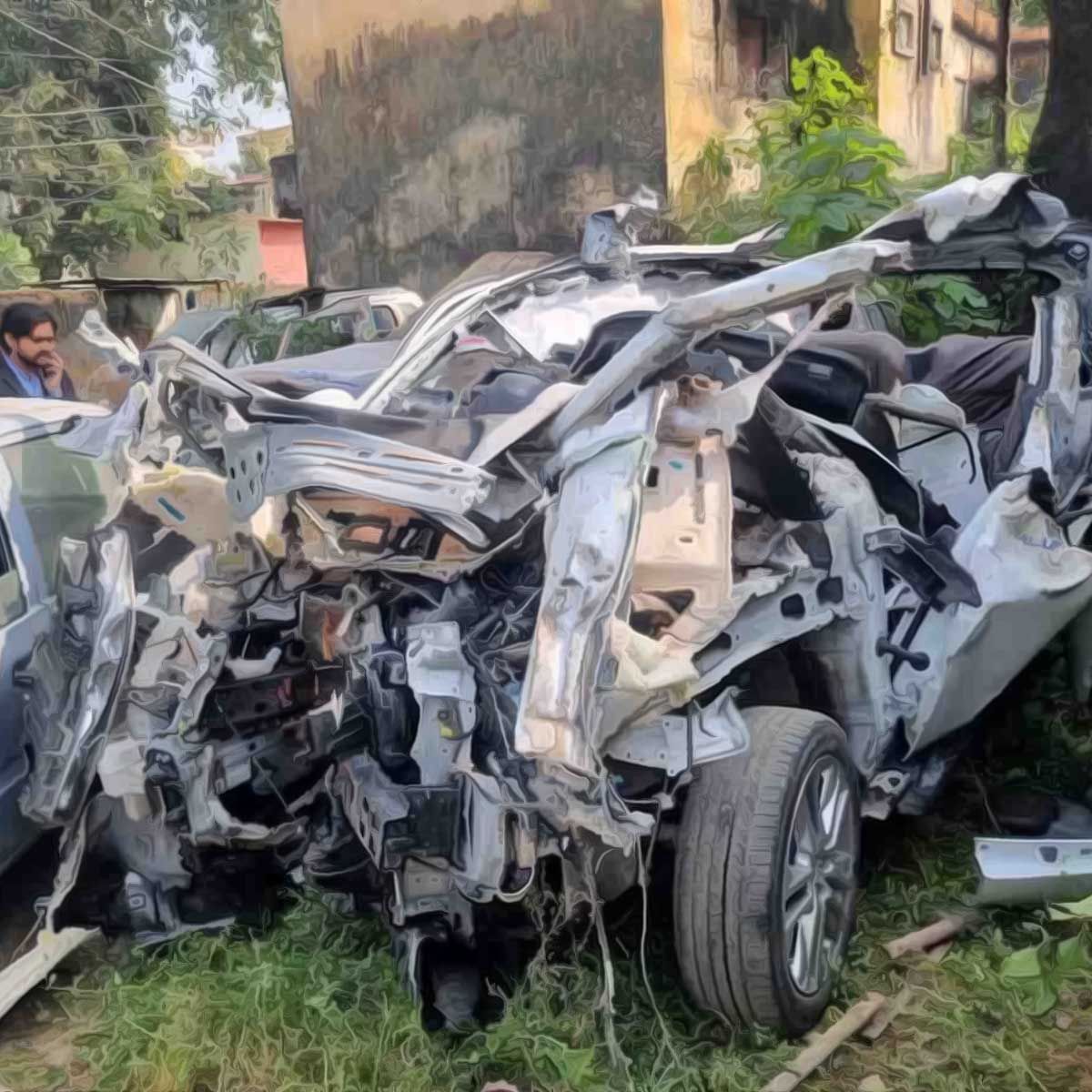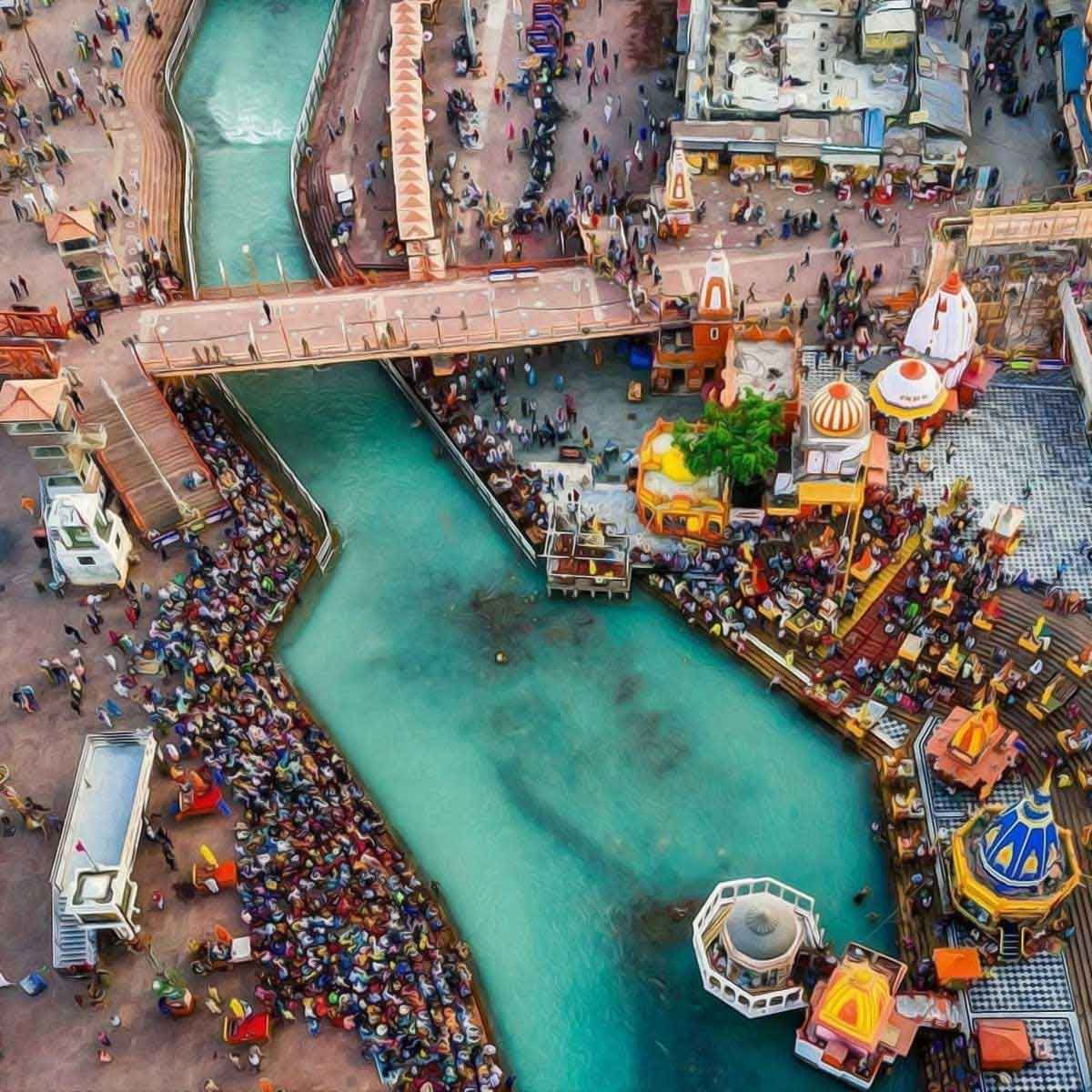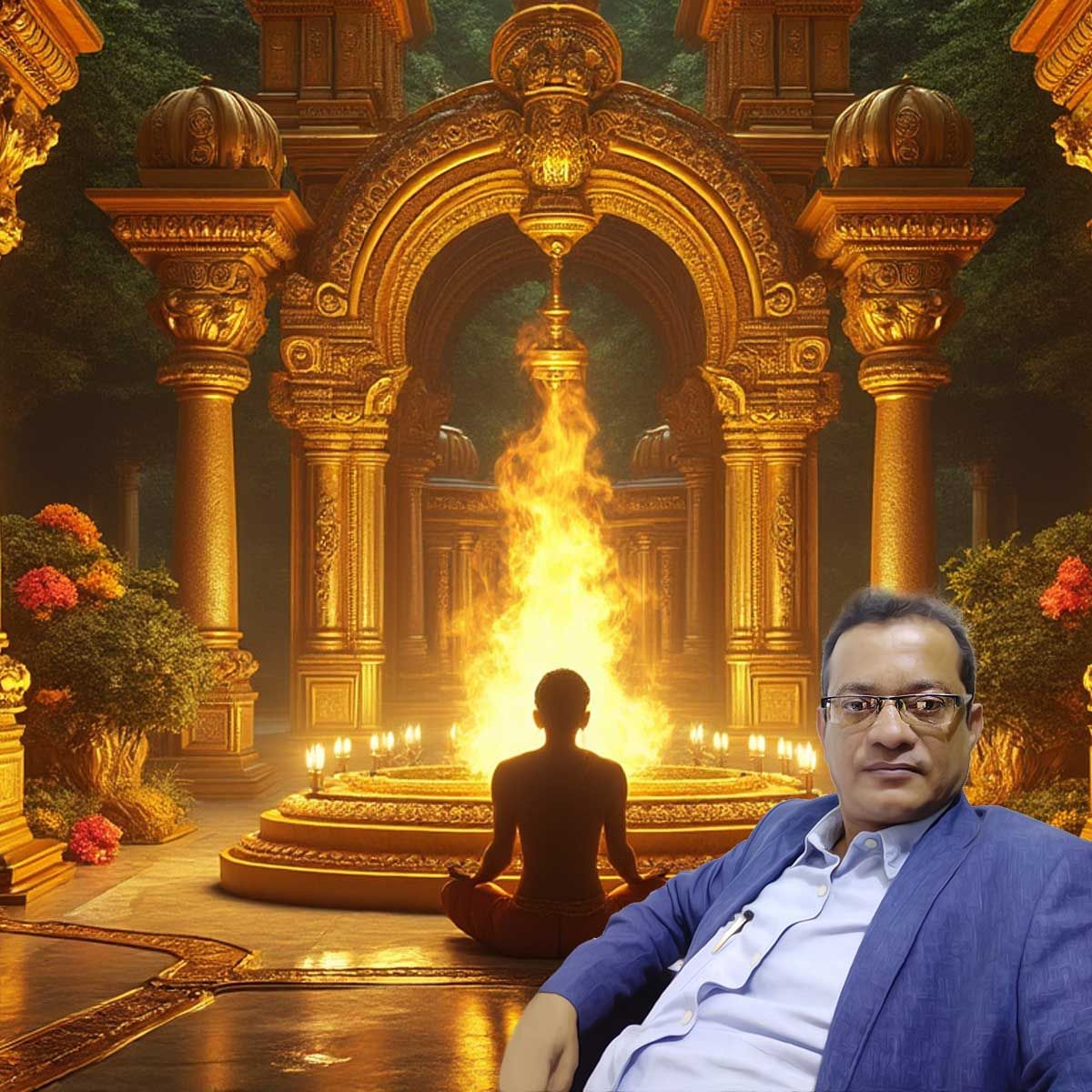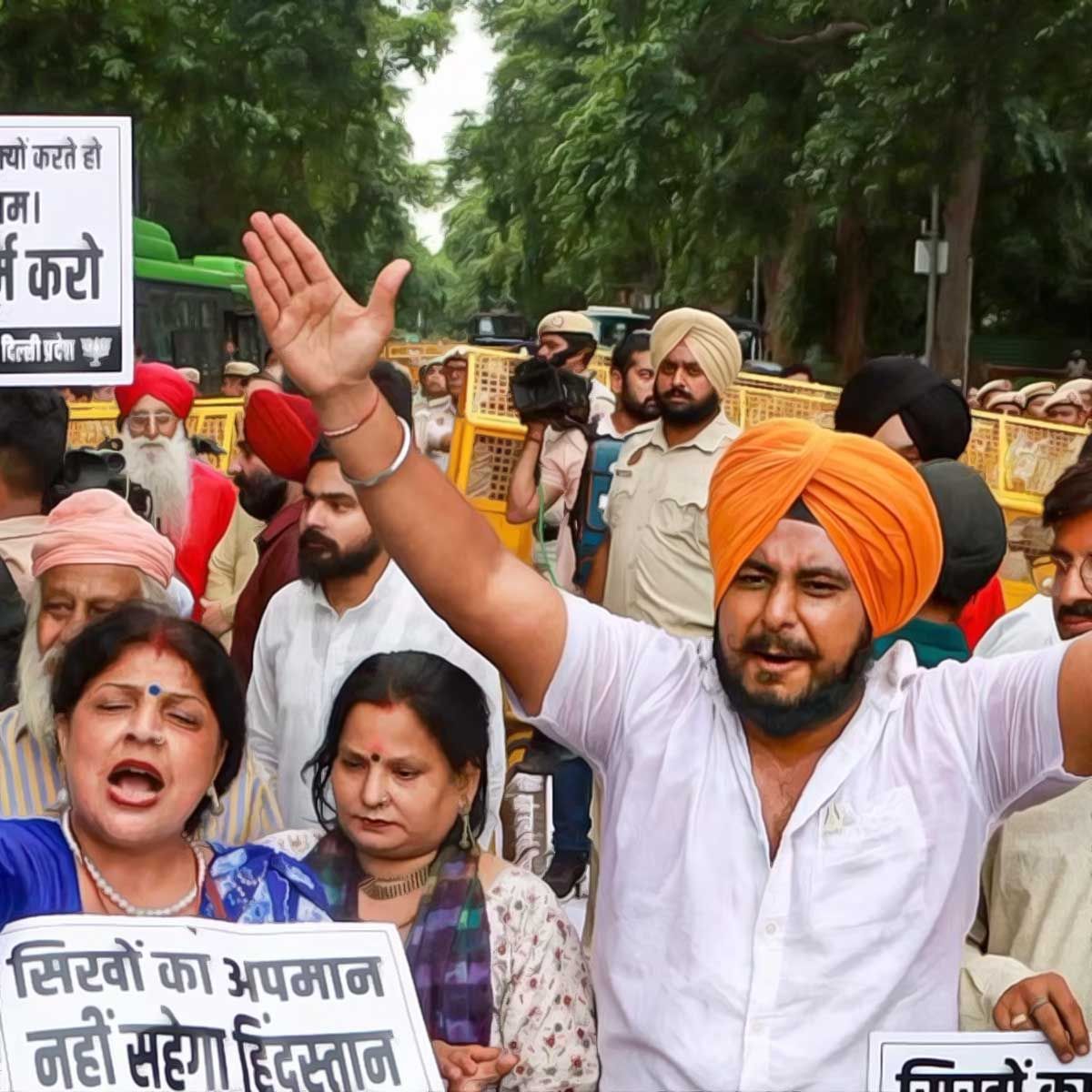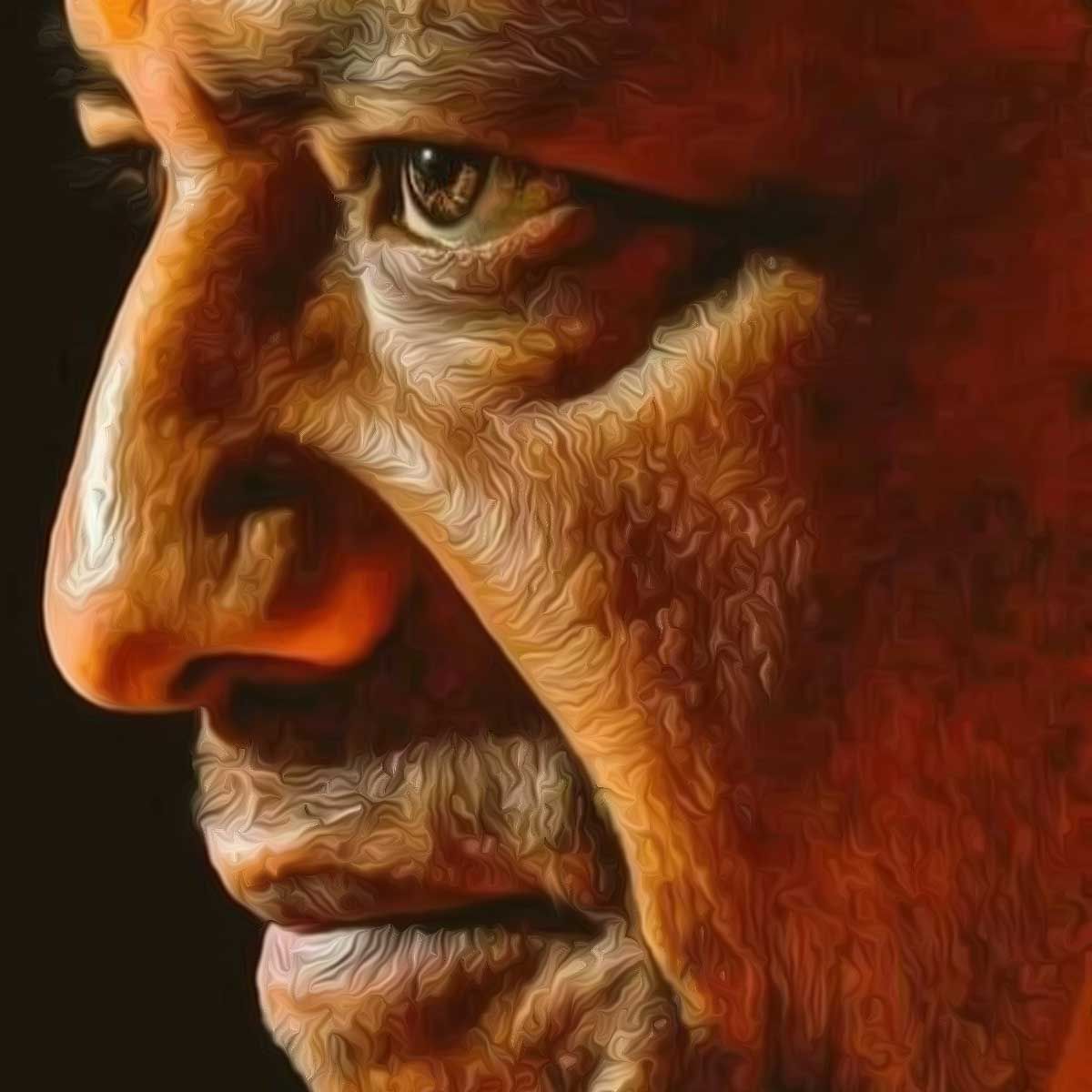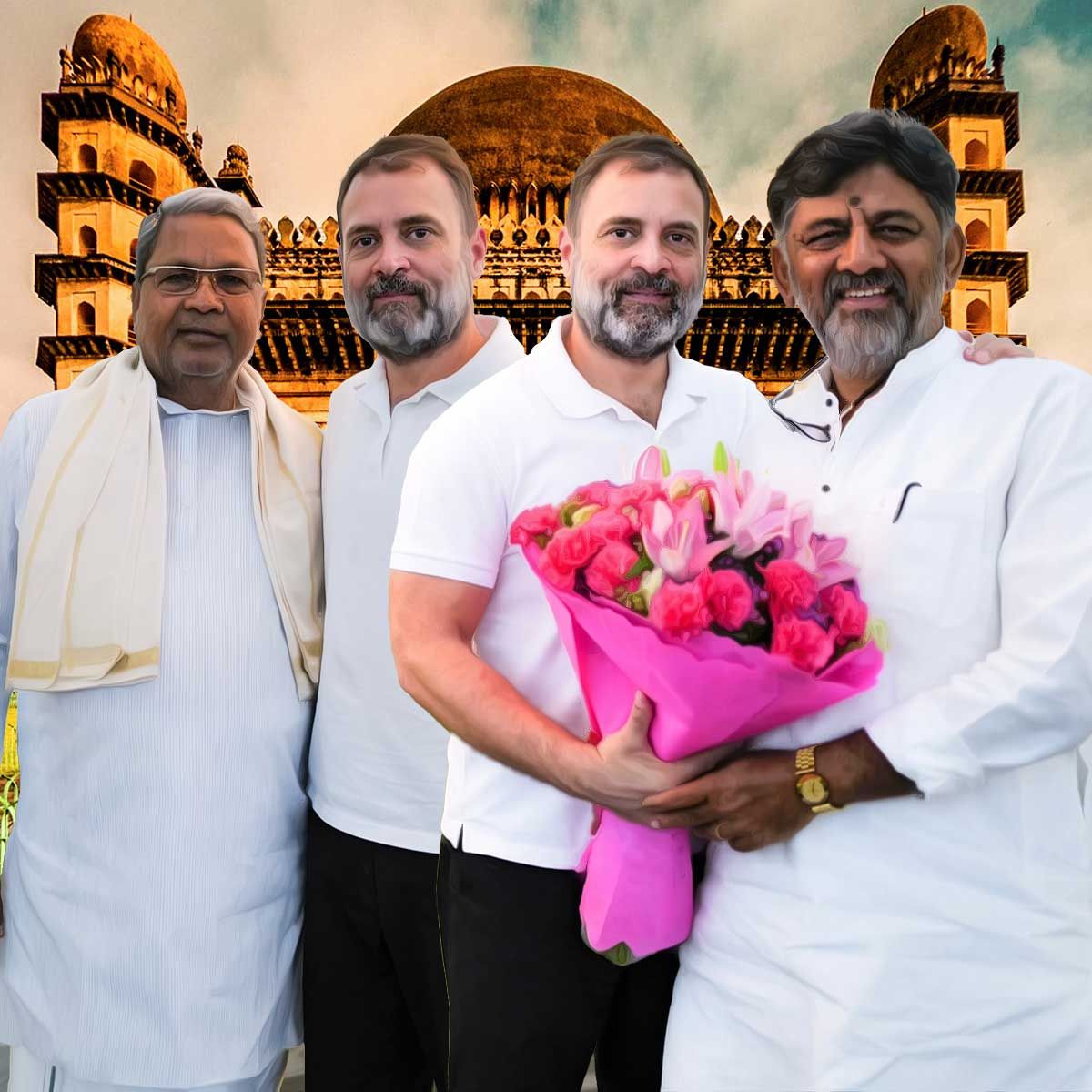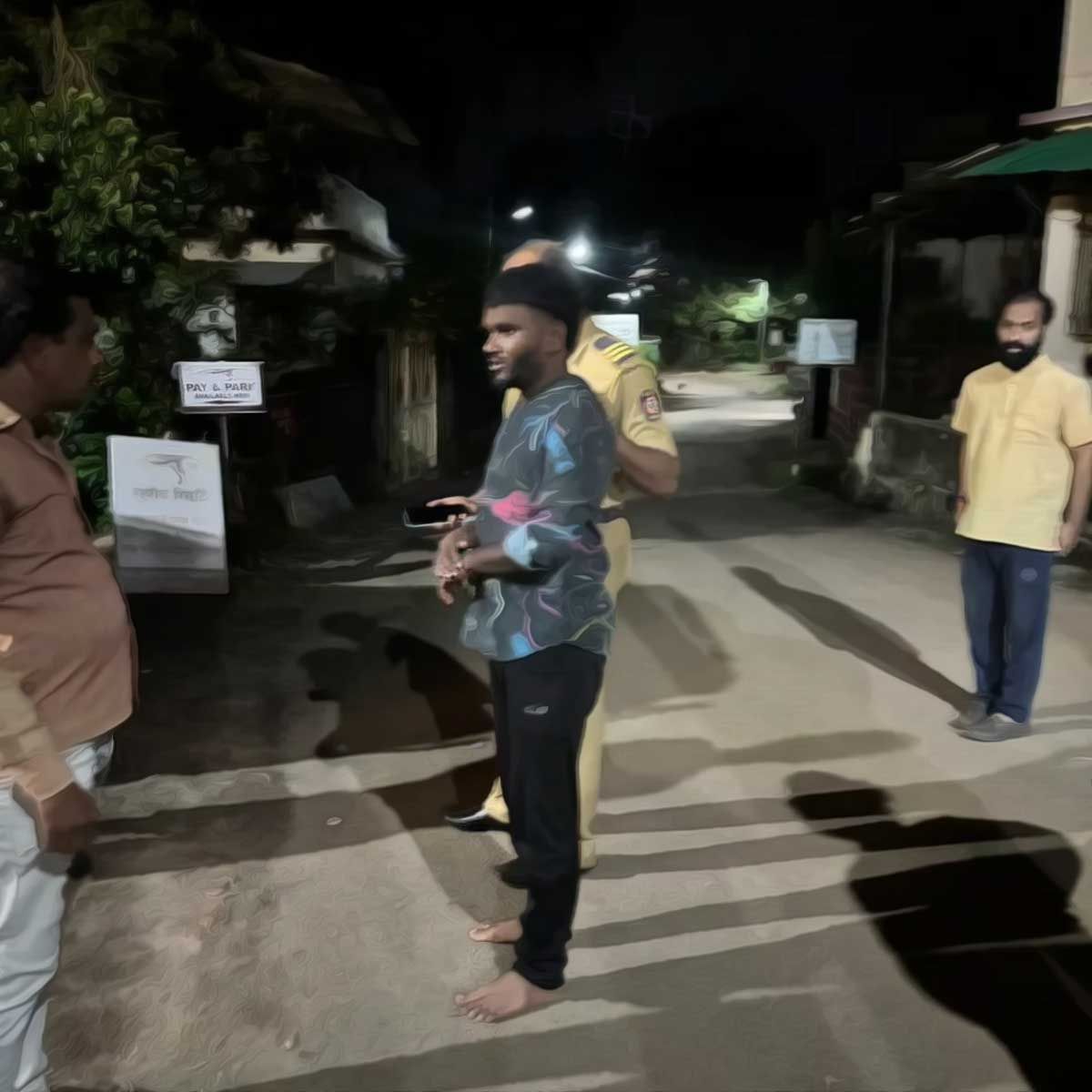More Coverage
Twitter Coverage
JOIN SATYAAGRAH SOCIAL MEDIA
"I am not inclined": In a pivotal turn, the Gujarat HC hints at no reprieve for Teesta Setalvad, accused of crafting 'mass graves' stories post-Gujarat riots, associate Rehman Khan's allegations point to her ordering the controversial exhumation of bodies

In a recent development that may pose challenges for activist Teesta Setalvad, the Gujarat High Court made an oral observation that might affect the course of her legal battle. On Monday, the court stated that it was "prima facie" not inclined to dismiss a First Information Report (FIR) filed against Setalvad in 2006. This FIR pertains to the digging of a mass grave in Pandarwada, a case formally known as [Teesta Atul Setalvad vs State of Gujarat].
|
The observation came from a single-judge bench headed by Justice Sandeep Bhatt. In a significant comment, Justice Bhatt orally remarked on his current stance regarding Setalvad's request for relief in this case. "After going through the records, let me tell you, I am not inclined (to grant relief) prima facie," Justice Bhatt stated.
In response to this observation, Setalvad's counsel addressed the bench, expressing a determination to convince the court otherwise. The counsel argued that the FIR lacked substance and did not constitute an offense. "There is nothing in the FIR. No offence is made out. It is just political victimisation," the counsel submitted, suggesting that the charges against Setalvad were more politically motivated than legally justified.
Justice Bhatt, however, offered a reply that reflected a broader view of such claims. "This is a broad word used nowadays," he responded, possibly alluding to the frequent usage of the term 'political victimisation' in various legal contexts.
The court was considering a petition filed by Setalvad, in which she sought to have the FIR lodged against her quashed. The FIR was filed in the Mahisagar district in 2006 related to the Pandarwada mass grave digging case. Setalvad’s contention in the plea was that the exhumation of the dead bodies was necessitated by complaints from riot victims. These victims claimed that the bodies of their loved ones were disposed of without adhering to proper religious rites.
|
During the hearing, Justice Bhatt posed a rhetorical question that highlighted the complexity of revisiting such cases. "Why are such dead horses required to be pulled?" he inquired, suggesting a questioning of the necessity or relevance of reviving this case many years after the incident.
The Gujarat High Court has decided to adjourn the case involving Teesta Setalvad, an activist entangled in multiple allegations related to the 2002 Gujarat riots. The hearing has been postponed, with the next session scheduled for January 9. This adjournment provides additional time for the court to consider the intricate details of the case, which has garnered significant attention due to its sensitive nature.
Setalvad is accused of a serious and controversial act: exhuming bodies of the victims of the 2002 Gujarat riots. The allegations further state that she created a "media sensation" by displaying these exhumed bodies in front of electronic media outlets. This act, if confirmed, is a grave matter, as it involves handling the remains of riot victims in a way that could be seen as disrespectful and sensationalist.
The case against Setalvad took a significant turn when her associate, Rehman Khan, withdrew his support. Khan alleged that it was Setalvad who instructed the digging of graves and the exhumation of bodies. This allegation, coming from a former associate, adds a crucial dimension to the case, potentially impacting Setalvad’s defense.
In a separate but related matter, Setalvad also faces accusations of fabricating evidence in the 2002 Gujarat riots case. These allegations suggest that she attempted to falsely implicate the then Gujarat Chief Minister, who is now the Prime Minister of India, Narendra Modi. The severity of these allegations cannot be overstated, as they imply a deliberate attempt to manipulate legal proceedings and public opinion regarding a highly sensitive and politically charged event.
Interestingly, the police, while lodging the FIR against Setalvad, cited the mass grave digging incident as evidence of her "criminal antecedents." This approach by law enforcement suggests that they view the grave digging case as indicative of a pattern of criminal behavior on Setalvad’s part, a perspective that could influence the legal proceedings and the public narrative surrounding the case.
As the court reconvenes on January 9, the multiple allegations against Setalvad and the complex background of the 2002 Gujarat riots continue to make this a closely watched case. The decisions made in this case could have significant implications for Setalvad and for the broader narrative of the Gujarat riots and their aftermath.
|
The Unearthing of Mass Graves and Legal Repercussions for Teesta Setalvad
In December 2005, a startling discovery in Gujarat’s Panchmahal district caught national attention. Media reports revealed that a mass grave, believed to contain the remains of 21 victims of the Gujarat riots, had been uncovered along a riverbank in Lunawada village. This discovery was made under controversial circumstances.
Rais Khan, an activist associated with Teesta Setalvad’s NGO, Citizens for Justice and Peace, was reportedly involved in unearthing these graves without any official authorization. The digging took place on the morning of December 27, with some of the victims' families present alongside Khan. This unauthorized excavation of human remains raised serious legal and ethical questions.
In the wake of this discovery, Teesta Setalvad made a televised appearance on CNN IBN, where she disclosed the finding. Her announcement sent shockwaves across the country, bringing widespread attention to the incident. Subsequently, the National Human Rights Commission took notice of this matter, requesting a detailed report from the state government regarding the discovery.
Legal actions followed the revelation of the mass graves. An FIR was filed against twelve individuals, including Rais Khan, for the unlawful exhumation of remains from what was described as the municipality’s “official” burial place for unclaimed bodies. The FIR, lodged by the Lunawada Sanitary Inspector, was based on claims by municipal officials that the remains were improperly removed from their designated burial site.
In this FIR, Rais Khan was specifically named for assisting locals in excavating the dead bodies. The other 11 accused included local tribals and families of the victims who had started the digging. This development added another layer of complexity to the case, implicating those who were directly affected by the riots.
The situation escalated when Khan informed the police that the exhumation was carried out under the directive of Teesta Setalvad. Following this revelation, Setalvad’s name was added to the FIR, marking her deeper involvement in the case. The controversy surrounding the activist intensified, leading to her filing a petition in the case in 2017.
|
Disputed Claims About the Mass Grave: The Narrative of Teesta Setalvad
The discovery of a mass grave in Gujarat’s Panchmahal district, initially perceived as a grim reminder of the 2002 riots, later unfolded into a complex controversy involving activist Teesta Setalvad. The unfolding of this event caused widespread national uproar, but the truth behind it was questioned and contested.
An affidavit from a journalist, as mentioned in the book ‘The Truth About Teesta Setalvad,’ provides a different perspective on the incident. The book alleges that Setalvad manufactured the narrative of the mass graves. It claims that she leveraged her media connections to create a sensation around the discovery, potentially manipulating the public's perception.
The book scrutinizes Setalvad’s actions, despite her being a recipient of the Padma Shree by the UPA government for her contributions to the public sphere. It suggests that her actions, far from serving the honour and well-being of the Republic, were in fact undermining the nation's laws and disrespecting democratic and constitutional institutions.
The narrative presented in the book alleges that Setalvad misled the public into believing the Gujarat government was complicit in the mass burial of religious minority group members. This claim was particularly incendiary, suggesting government involvement in a heinous act.
|
An excerpt from an affidavit by a journalist who was present during the exhumation of the graves is particularly telling. The journalist’s account as cited in the book alleges that Setalvad went to considerable lengths to twist facts and fabricate lies to support her claims.
The affidavit describes the scene: “On 27th December 2005, I along with my camera team visited the Pandharwada village [Panchmahal District]. Rais Khan and about one dozen people from the village gathered at the site where bodies were suspected to be dumped. When the villagers started digging the area they found shallow graves.”
According to the affidavit, Rais Khan, an associate of Setalvad’s, made a prompt call to her upon discovering the mass grave. Setalvad’s reaction to the news was one of impatience, as described by the journalist. “Rais Khan immediately gave a call to activist Mrs. Teesta Setalvad. After hearing the news about discovery of mass grave she became impatient and talked to me also from Khan’s cell phone. She asked me to break the story right away,” the affidavit states. Setalvad's urgency is evident in her request to the journalist to immediately publicize the discovery.
The journalist, working for Sahara Samay, intended to handle the story with caution, emphasizing the need for visual proof. Despite the journalist’s insistence on a careful approach, Setalvad, according to the affidavit, did not wait. “Within 15 minutes I got a call from my Sahara Samay Desk in Noida that Mr. Rajdeep Sardesai was breaking the story on CNN-IBN TV channel with Mrs. Setalvad going live on the air along with him,” the affidavit added. This rapid progression of events indicates a keenness to release the story without the due process of verification.
|
The journalist also exposed an alleged conspiracy by Teesta and Rais. The affidavit states, “I met Rais Khan and others, spoke to Mrs. Teesta and visited Pandharwada as a part of my Journalistic duty, however, at no point of my time during my interaction with Rais Khan and telephonic conversation with Teesta Setalvad, I was ever told by them that they have not taken permission from the authorities to exhume the bodies and that they knew that the bodies so buried by the police near Paanaam river at the outskirts of Lunawada town, were buried with proper procedure.” This statement suggests that Setalvad and Khan were aware of the lawful burial of the bodies but chose to pursue a different narrative.
The journalist, from Sahara Samay, confirmed that Teesta and Rais knew the bodies were buried following proper procedures. Despite this knowledge, they allegedly chose to deceive facts and promote their own narrative. Additionally, the journalist mentioned how Rajdeep Sardesai played a role in hastily broadcasting the story alongside Setalvad, without apparent validation.
The police clarified that the corpses had been buried following a post-mortem examination, and importantly, the individuals responsible for the atrocity had been identified and arrested. “The bodies buried in the grave near Panam river are those belonging to the victims of the Pandharwada massacre and each has been legally accounted for during investigation,” stated the then Director General of Police, A.K. Bhargava. This statement by the police challenges the narrative set forth by Setalvad’s NGO, suggesting that the procedures followed in dealing with the bodies were legal and part of a thorough investigation.
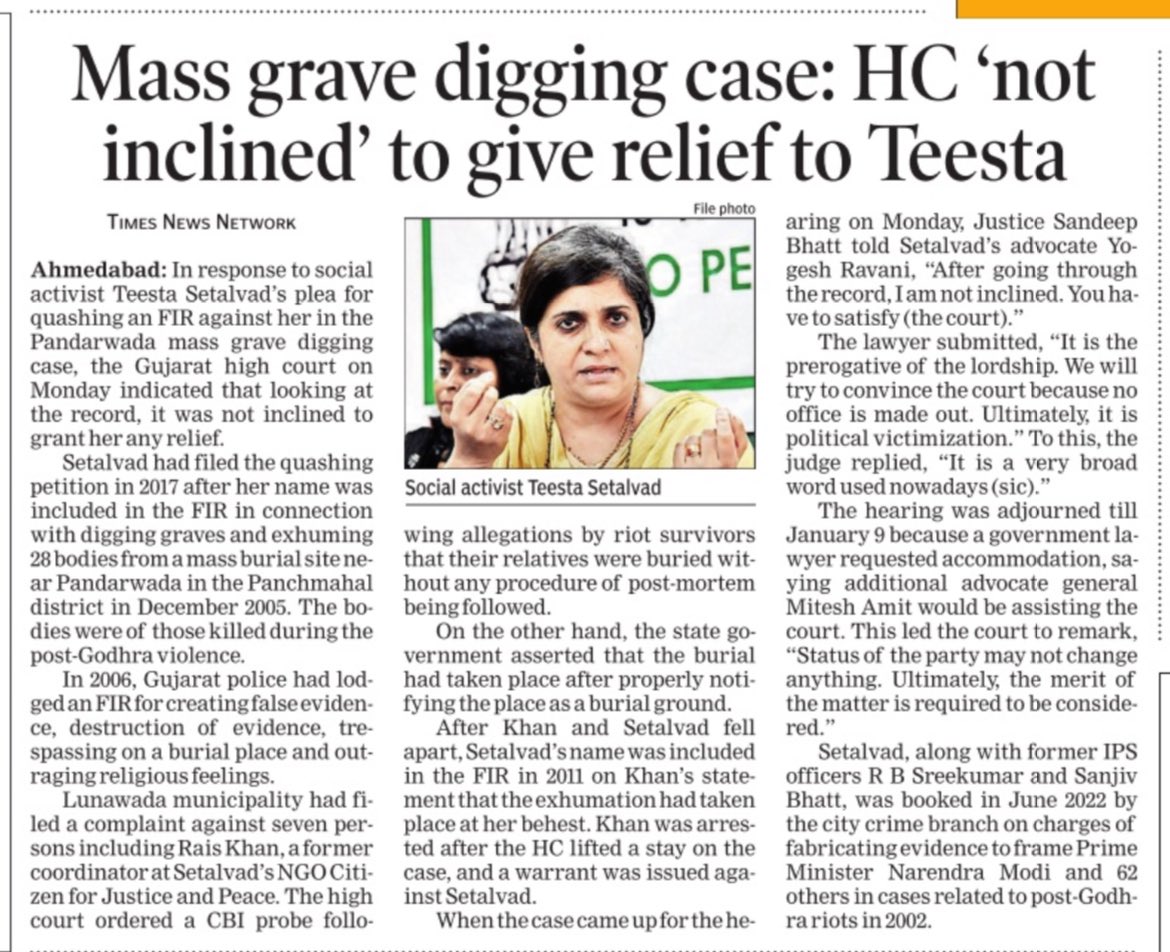 |
In addition to this case, there have been several other instances where Teesta Setalvad, along with her aides, has been accused of fabricating claims and trying to influence legal proceedings. Notably, in the infamous Best Bakery case, Setalvad faced accusations of manipulating key witnesses. Two critical prosecution witnesses, Yasmeen Bano Sheikh and Zaheera Sheikh, alleged that they were lured and misguided by Setalvad into giving false testimony. These serious allegations imply that Setalvad may have attempted to coerce witnesses to support her version of events, thereby potentially tampering with the course of justice.
 Support Us
Support Us
Satyagraha was born from the heart of our land, with an undying aim to unveil the true essence of Bharat. It seeks to illuminate the hidden tales of our valiant freedom fighters and the rich chronicles that haven't yet sung their complete melody in the mainstream.
While platforms like NDTV and 'The Wire' effortlessly garner funds under the banner of safeguarding democracy, we at Satyagraha walk a different path. Our strength and resonance come from you. In this journey to weave a stronger Bharat, every little contribution amplifies our voice. Let's come together, contribute as you can, and champion the true spirit of our nation.
 |  |  |
| ICICI Bank of Satyaagrah | Razorpay Bank of Satyaagrah | PayPal Bank of Satyaagrah - For International Payments |
If all above doesn't work, then try the LINK below:
Please share the article on other platforms
DISCLAIMER: The author is solely responsible for the views expressed in this article. The author carries the responsibility for citing and/or licensing of images utilized within the text. The website also frequently uses non-commercial images for representational purposes only in line with the article. We are not responsible for the authenticity of such images. If some images have a copyright issue, we request the person/entity to contact us at This email address is being protected from spambots. You need JavaScript enabled to view it. and we will take the necessary actions to resolve the issue.
Related Articles
- Calcutta Quran Petition: A petition to ban the Quran altogether was filed 36 years ago, even before Waseem Rizvi petitioned for removing 26 verses from Quran
- Vinayak Damodar Savarkar – A Misunderstood Legacy
- "अंधा कानून": Kanhaiya Lal's brutal beheading by radical Islamists for supporting Nupur Sharma shocked Udaipur, and now, in a sorry state of justice, Mohammed Javed, who informed the killers, is granted bail, sparking outrage and fear across the nation
- Biggest Secret Reveal - How ties between Indra Gandhi and KGB made India a puppet of USSR during the Cold War
- How Communists betrayed India - 100 Years of Russian Revolution
- "हम-तुम अलग हैं फ़र्क है": In a stunning display of judicial leniency, Pune's wealthy builder’s drunk teen son, who killed two with his Porsche, was swiftly granted bail—only to face the harrowing task of writing a 300-word essay and making traffic boards
- Linking Aadhar with voter ID Bill passed in Lok Sabha: Election Laws Amendment Bill
- Golden time of Nehru dynasty, when assets of country like Indian Navy were used for Vacation and to 'pay respect' to Edwina Mountbatten's death
- Nehru lost election and became first Prime Minister of free India: All thanks to miraculous Gandhi
- Supreme Court of India Justice Nagarathna ~ Hate Speech denies human beings the Right to Dignity, and a greater responsibility is cast upon public functionaries and celebrities against vitriolic statements owing to their position









